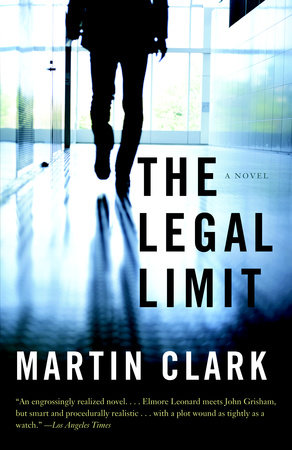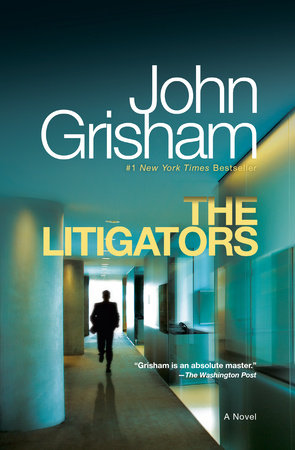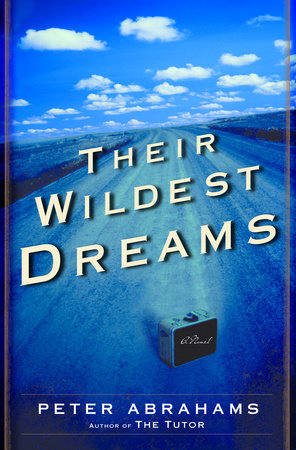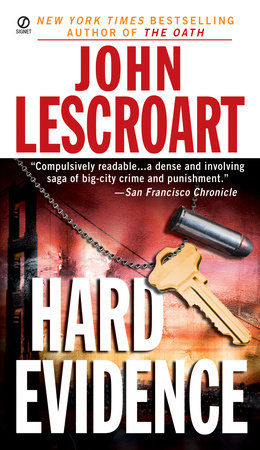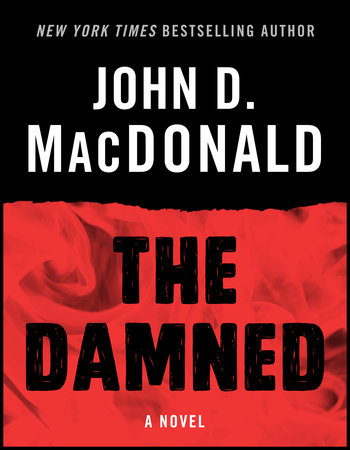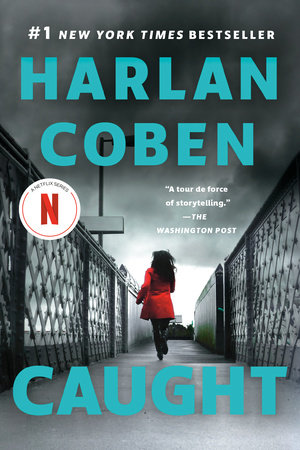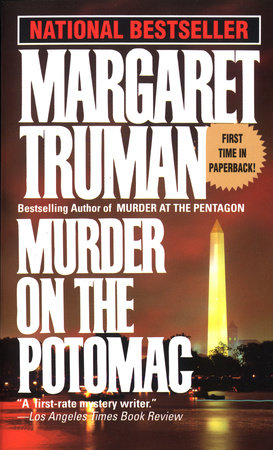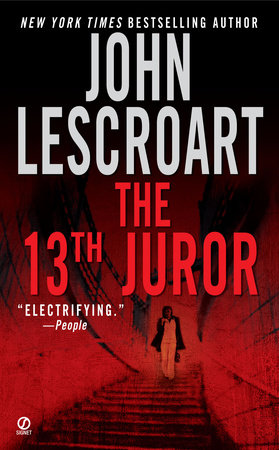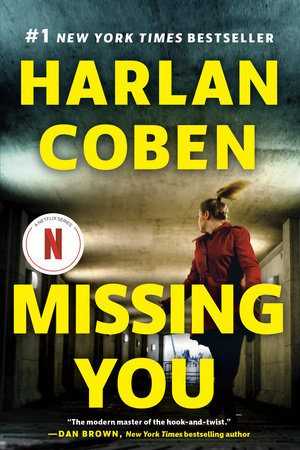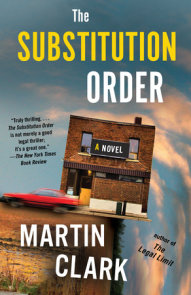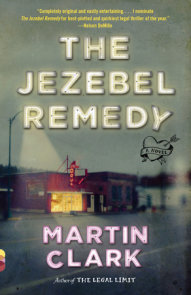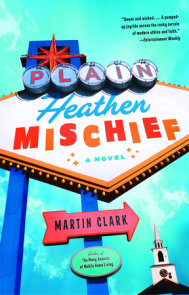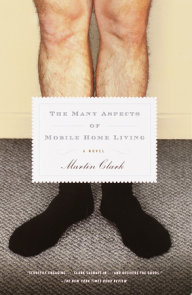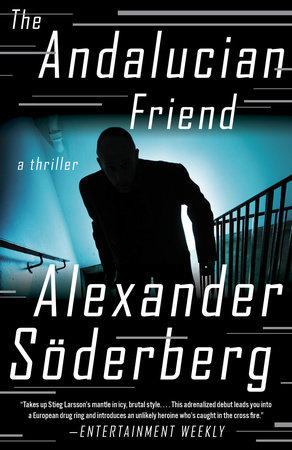Author Q&A
Q: Can you tell us a little about the title of this book? It seems “The Legal Limit” has multiple meanings here?
A: Several friends and early readers have noted that this title is not as rococo or obviously colorful as my prior choices—The Many Aspects of Mobile Home Living and Plain Heathen Mischief—and while it isn’t quite as flashy, I do think it provides a very good three-word summary of the book’s bigger themes. Without giving away too much, it’s fair to say the story deals with the rift that sometimes occurs between hidebound, black-letter law and simple justice. It touches on the fact that the court system is ill equipped to handle certain difficult situations, and it asks readers to make a fundamental judgment about how we want our courts and juries to decide issues that dramatically affect peoples’ lives. On another level, the title references .08, the legal limit for DUI in Virginia, and the resolution of a borderline drunk driving case is a fairly important part of the novel.
Q: Along those lines, you write in the first section of the book: “This story should also give folks a taste of how it feels to make hard decisions, stick them in a lonely black robe and situate them so they can understand how the correct answer, the right ruling, sometimes brings along its own tricks and complications.” What would you hope readers take away from this story beyond just being wildly entertained by the plot twists?
A: That’s what I want to do most of all—I want people to be entertained, to enjoy reading my book, to simply have a good time. I’m with Tom Wolfe on that notion; I think in most instances we as writers should do all we can to take folks for a big ol’ fun trip they wouldn’t ordinarily consider, along a route they probably can’t travel by themselves. I’ve tried to do that in The Legal Limit. Moreover, I’ve also attempted to do something different in this novel, to shape it and structure it so that the reader will become invested in the story and reach a point where he or she will, at least intellectually, have to make a choice as to what is fair, what should happen, how the legal system should react to the problems facing the people in the novel. Stated differently, if I’ve done this well enough, I won’t just take you to the county fair and describe the Tilt-a-Whirl; with any luck, I’ll actually put you on the ride and let you experience it for all it’s worth. And, as I highlight early in the book, I think people will be of different minds as to what the “right ruling” should be—for example, my wife disagrees with the way the judge in the story bends and whittles the rules to get a desired result.
Q: How much of this novel is based on real life events? Why did you choose to tell this story in the form of a novel and how did you go about deciding which facts to alter and how much?
A: By all means, let me emphasize that this book is done as fiction. That bears saying a second time: The Legal Limit is fiction. Whole chunks are completely made up. Nevertheless, as I mention at the start of the novel, it is also loaded with facts, real people and true accounts. I chose to make it as authentic as possible because I want readers to understand, as they follow the narrative and consider the tension in the story, that this is not just some abstract, writerly exercise—much of this has happened and will happen again and the flesh-and-blood people portrayed in the book were absolutely affected by the outcome. Now, as to how much is true, and who’s who, I’ll leave it at this: Folks of a certain age here in Patrick County, Virginia, will know most of the characters and recognize the two cases at the heart of the novel. Finally, I did hide some clues and hints throughout the book, sort of a set of puzzle pieces, that will lead anyone who’s curious and enterprising to many of the actual events I’ve written about.
Q: You write about small town life where everyone knows everyone’s business. Certainly this lends itself well to a crime novel as, in a way, it’s much harder to keep secrets when all the players are so closely connected. Would you agree that small towns provide fertile ground?
A: The Legal Limit is set in Patrick County and my small (less than a thousand residents) hometown of Stuart, Virginia. I suppose it’s noteworthy that there are few long-term secrets here, but more important, a murder has a far greater reach and impact in an area where so many people are linked in so many ways. Also, places like Stuart, where merchants still do business on a handshake and men tip their hats to passing ladies, are quickly becoming extinct, and I attempted to make the town almost another character in the book and to show how a sense of community figures into the ultimate handling of a murder, its cover-up and the people involved in the crime.
Q: The Legal Limit tackles some difficult questions, one of which is what to do when family loyalty comes up against one’s own personal morality or the demands of the law. In fact, the idea of loyalty—to family, to friends, to certain ideals of justice—is central to this novel. Was this something you set out to explore or is it just that loyalty is pretty much what drives most of our actions?
A: One of the most fascinating questions for me as a judge and a writer focuses on precisely where the allegiance between a courtroom oath and a blood bond should come to rest. Succinctly put, would you lie or ignore the law to help your child or spouse, especially if you were convinced they’re innocent? Or more tricky yet, what if you didn’t really know? It’s that question and the character Mason Hunt’s response to it that adds a layer of plot to the novel and ultimately causes him complications despite an exemplary life filled with diligence and decency. As an aside, one of the old-school judges in a county adjacent to ours used to opine that, in his estimation, it wasn’t perjury to lie for your mother, father, son, daughter, sister or brother. He drew the line at cousins and in-laws, though.
Q: This novel deals with the idea that there isn’t much we do in life that doesn’t come back to us in some way in the future with potentially life-altering consequences. Has your day job given you a little more insight into the theory of good people making bad choices, how easily we all fall into mistakes?
A: Every single day in court I meet people who’ve made baffling, head-scratching choices. Some you have sympathy for, some you don’t. Of more interest to me, though, and more central to this book, is the situation or dilemma that simply doesn’t lend itself to a neat, safe answer. Suppose there are two seemingly solid choices? Or nothing but bad options? Then what do you do? It doesn’t happen frequently, but there is the occasional decision we have to make that comes down to a hunch, a coin flip, a best guess, or a quick, gut reaction. When both choices have merit or neither is particularly attractive, be it in a law-school discussion or in the real world or in a novel, that’s when things get slippery, and from an author’s perspective, intriguing.
Q: While all of your books have been informed in some sense by your experience as a judge, you say that you’ve always resisted writing specifically about one of your cases until now. What made you decide to break your rule about “not mixing law and literature?”
A:Well, at the risk of repeating myself, I’m not inclined to go into the specifics about the exact cases, people, events and circumstances that found their way into this novel. There are several reasons for my reluctance. I’m convinced that as writers we don’t need to give away all our sleight of hand and deconstruct every little riff and passage in our books, sort of talk them to death and drain out all the mystery. Personally, I don’t want to see the wires and trapdoors and green screens and computer guys who concoct the special effects. The book should stand on its own, plain and simple. Me, I’d rather be Houdini than Penn and Teller, keep the illusion intact. There are also obvious privacy and ethical concerns that I take extremely seriously—one core plot strand of this novel I will never explain or comment on. Additionally, and perhaps to more directly answer your question, I wrote a novel grounded in courtroom happenings because I love my job and I care deeply about the judiciary and our role in the legal process, and I worry that we are being marginalized and losing our independence. Historically, from the age of Pericles to the rule of King Solomon to the era of circuit riders, we have valued judges’ competence and counted on their ability to do the right thing. I’m aware people will have complaints about this book, its ending and what it says about the law. But we are fast reaching a point where we either have to trust judges to do their jobs and grant them discretion and latitude or simply make them bean-counters and administrators with rubber stamps. As my eighty-seven-year-old father frequently says: “Everybody applauds the law until they need justice.” This is a book—thematically—about how we should strike that balance.
Q: You seem to have an interest in relationships between brothers—I’m thinking back to Many Aspects—and in The Legal Limit it’s the relationship between Mason and Gates Hunt that drives much of the action. Is there something about these relationships that holds a particular interest for you as a novelist?
A: There are several intentional, miniscule bridges and echoes that bind all three of my books, though each novel is completely distinct and freestanding. One obvious common denominator they all share is a complex sibling relationship, a circumstance that offers lots of space for literary fireworks, especially set against a backdrop of the law or high living or religious beliefs.
Q: Some of the exploits in the book (I’m thinking of a certain trip to Puerto Rico) seem a little too wild to be all fiction…care to comment?
A: I always feel bad when people turn out to see me at bookstores or write me letters or meet me in person and they’re expecting the guy described in all the quotes and reviews, you know, “the drinking man’s John Grisham,” or “the legal Hunter S. Thompson.” Sadly, they get a graying judge who shows up for work sober every Monday morning and hangs around the farm with his wife for fun. I’m afraid the Bacchanalian passages are all fiction, just flights of fancy. Now, I did go to Puerto Rico, but the extent of my big party was two cold beers and a plate of shrimp before an afternoon nap.
Q: What’s next for you?
A: I never imagined I’d have one book published, much less three. I’m going to coast on The Legal Limit and whatever comes with it like nobody’s business. I do have the start of a new novel in my head, the plot gimmick as I like to call it, but there’s still a ways to go before I begin setting it to paper.
Q: And we have to know, what CD’s are you listening to lately and what creatures are living on the Clark property these days?
A: Music is pretty much as it always is: My pal Robert Earl Keen, General Johnson and the Chairman of the Board, Miles Davis, cheesy 80’s funk downloaded onto compilations. As for the creatures, we have three horses, four cats (one recently adopted from the pound), two black Labs, Larry Brown the rooster and his hen, and several fish in our new pond. With the exception of the fish, most are shown looking sharp on my website, www.martinclark.com. Slick how I dropped in that website address, huh?
